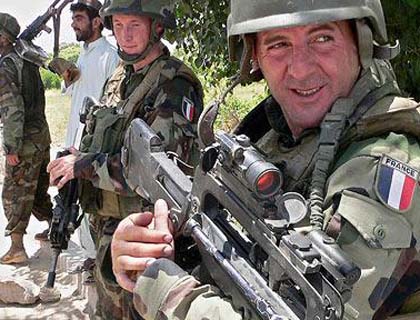WASHINGTON - The United States and its NATO allies were consulted on the latest French decision to withdraw combat troops from Afghanistan in 2013, the Obama administration said on Friday.
"This timetable was worked through, both with the Afghans and with NATO, as part of our collective process of transferring increasing security authority to Afghan leadership," the State Department spokesperson said.
Victoria Nuland was commenting on the announcement made by French President Nicolas Sarkozy in this regard in the presence of visiting Afghan President Hamid Karzai in Paris.
A week after the killing of four French soldiers, Sarkozy said his country had decided to hand over security in eastern Kapisa province, where most of the 3,600 contingent is stationed, to Afghan forces in March.
"The pursuit of transition and this gradual transfer of combat responsibilities will allow us to plan for a return of all our combat forces by the end of 2013," he said. One thousand soldiers will return home this year.
Nuland said: "You will recall that after the death of the French soldiers, there were very strong statements from Paris. There were some concerns expressed in NATO countries and -- as well as in Afghanistan, that whatever was done needed to be done in a consultative fashion... And what we've seen now is just that: a consulted and managed effort."
The US and NATO, she said, wanted to continue to work together to ensure the pullout was implemented in a way that was consistent with the efforts of all of NATO states to give increasing authority to the Afghans.
"But what we are gratified by is that this was not precipitous, that this was worked through carefully with NATO, with the Afghans and in consultation with all of us," she added.
The spokeswoman said they were trying, as an ISAF community, to ensure that as they moved towards Afghan security lead in 2014, all the moves were phased and made in a managed manner.
Each country would be making national decisions, but they taking them in consultation with the rest of ISAF partners and with the Afghans, Nuland continued.
"The main thing now … is that this is done in a managed, phased, planned way. Having a year to work through this will allow us to have those conversations both internally within NATO countries and with the Afghans," she concluded.

